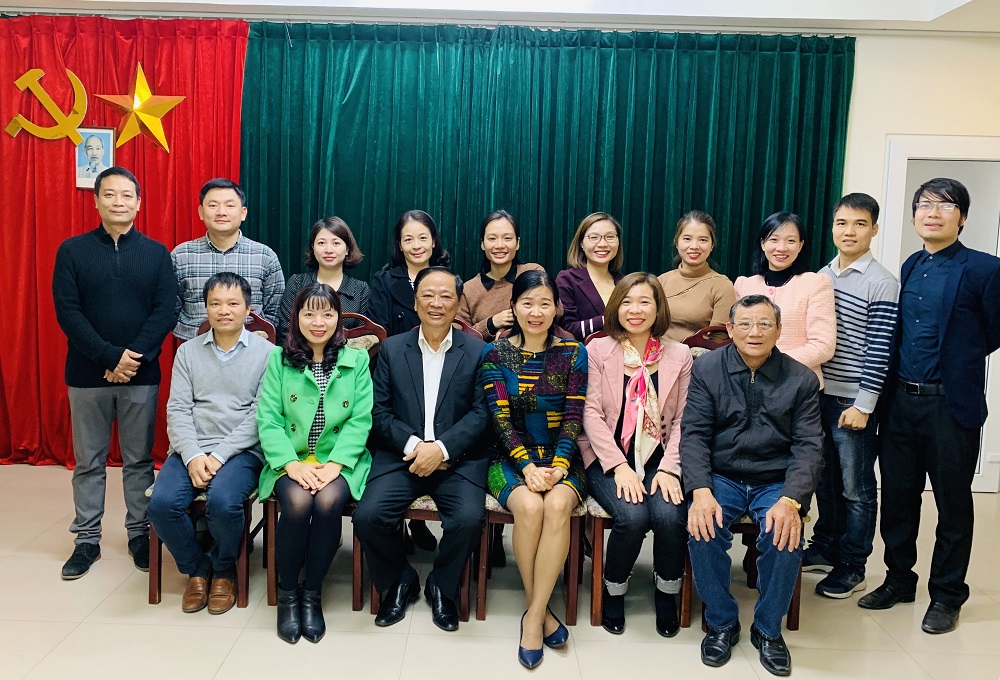
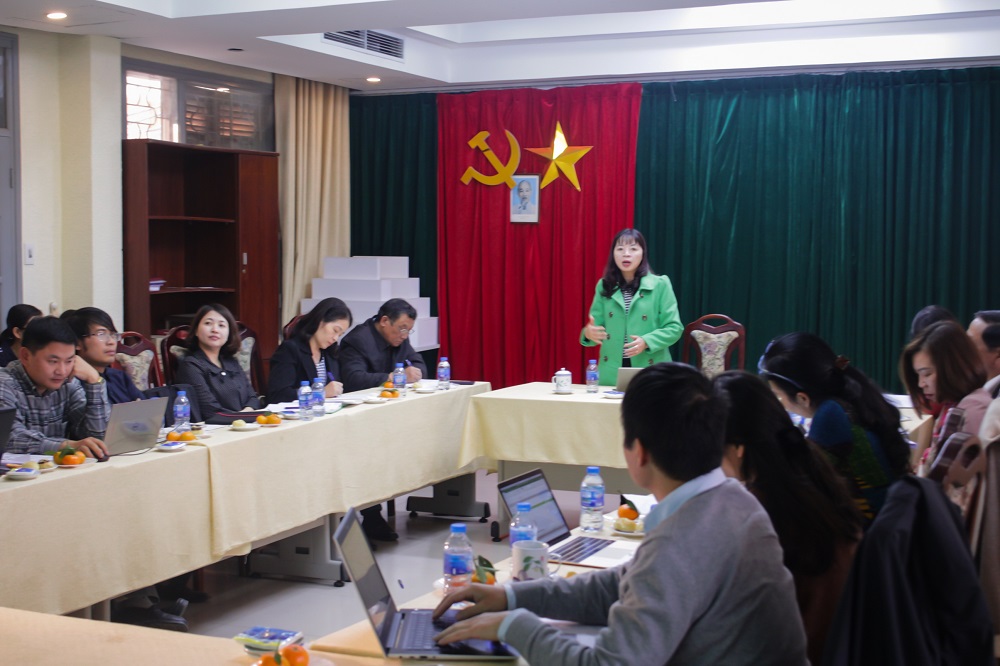
The council reviewed 5 course outlines for integrated teaching on wildlife conservation and prevention of illegal wildlife trafficking.
The council for evaluating the integrated lecture materials consisted of experts in the fields of journalism, media, and biodiversity conservation, including: Dr. Mai Duc Loc - Vice President of the Vietnam Journalists Association, Assoc. Prof. Dr. Dang Thi Thu Huong - Director of the Institute of Journalism and Communication Training, Assoc. Prof. Dr. Nguyen Thi Truong Giang - Head of the Radio and Television Department (Academy of Journalism and Communication), Assoc. Prof. Dr. Dinh Thi Thu Hang - Deputy Head of the Radio and Television Department (Academy of Journalism and Communication), and Dr. Nguyen Quang Truong - Head of the CITES Team, Institute of Ecology and Environmental Biological Resources. Attending the program were Ms. Hoang Bich Thuy - Director of WCS in Vietnam, along with staff, lecturers, and students from the Institute of Journalism and Communication Training.
Wildlife conservation and law enforcement against illegal wildlife trafficking are pressing global issues. Besides the overexploitation of natural resources and threats to the habitats of various plant and animal species, illegal hunting and trafficking of wildlife worldwide is also a major cause of population declines and extinction risks for many species, seriously threatening the ecological balance on Earth.
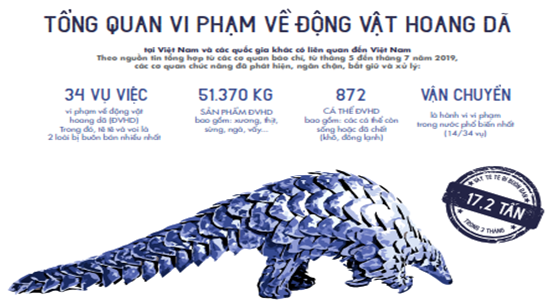
Source: WCS Vietnam
The media is identified as one of the important means in shaping and guiding public opinion, changing people's perceptions and behaviors in the conservation of wildlife and enforcing laws against illegal wildlife trafficking. Although this is a very urgent topic, information dissemination through the media is still limited. Besides the very elaborate and successful investigative journalistic works on this topic, information in the media in general has not received adequate attention. In fact, careless reporting on the profits or tactics of criminals can inadvertently stimulate demand and increase the desire to trade in wildlife.
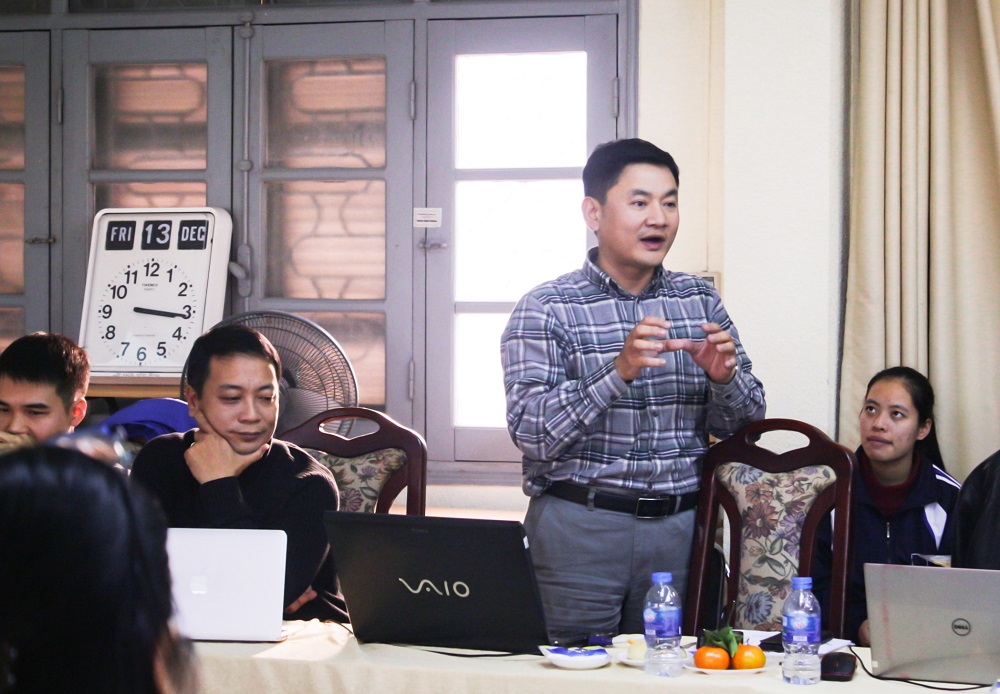
The instructors present integrated teaching content.
Regarding the Integrated Teaching Project, Associate Professor Dr. Dang Thi Thu Huong, Director of the Institute of Journalism and Communication Training, stated: The Institute of Journalism and Communication Training implements this project with the philosophy of "spiral-based training," with integrated subjects designed from the first to the fourth year of the Journalism program, ranging from subjects providing foundational knowledge of journalism and communication theory to practical training courses.
The five subjects implementing the integrated curriculum are:General Journalism and Media Studies, Law and Ethics in Journalism and Media, Radio News Program Production, Television News Program Production, Website Design and Content ManagementWith this design model, the Institute of Journalism and Communication aims to comprehensively equip students with awareness, specialized knowledge, understanding of law and ethics, and skills to work on the topic of conservation and combating illegal wildlife trafficking. This specialized issue is logically, flexibly, and creatively integrated into the journalism and communication curriculum. The approach explores various perspectives across different topics: raising awareness of biodiversity and ecological balance, knowledge of wildlife, the impacts of humans on habitats and wildlife, and law enforcement against illegal trafficking. In particular, the integration method within each course fosters students' proactive, creative, and critical thinking abilities. This contributes to meeting the future demand for enhanced information literacy among journalism and communication professionals.
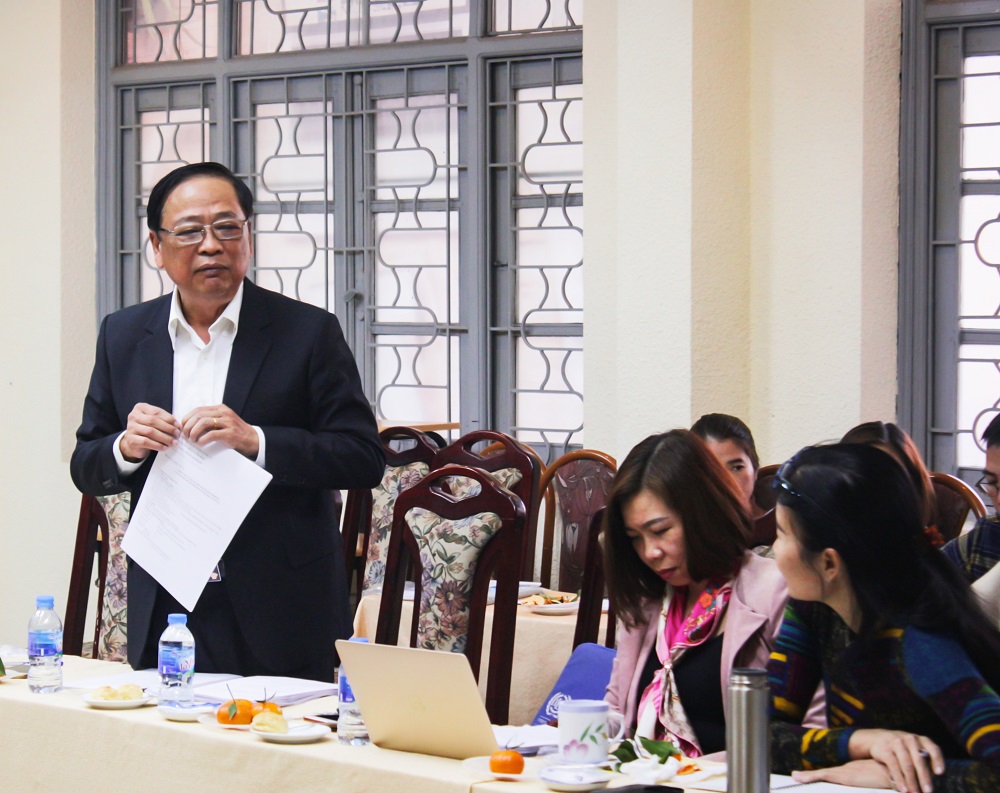
Experts highly appreciate the integrated teaching design model in the training program of the Institute of Broadcasting and Communication Technology.
Dr. Mai Duc Loc, Vice President of the Vietnam Journalists Association, welcomed the integrated teaching program of the Institute for Research and Communication. He shared that society is facing intense conflicts between economic development and the conservation of habitats and wildlife, and human needs are gradually reaching the threshold of balance and biodiversity. Wildlife conservation is also about protecting humanity in sustainable development. Journalism on conservation and combating illegal wildlife trafficking needs to be carried out with dedication and in-depth professional knowledge, avoiding bias and superficiality. The integrated teaching program of the Institute for Research and Communication meets scientific standards, combining a broad knowledge base and deep expertise, and needs continued investment to make a practical contribution to training future journalists.
The council shared many ideas to further refine the course syllabi, making them increasingly effective in practical teaching. While in phase 1 (WCS in collaboration with the Broadcasting and Television Department, Academy of Journalism and Communication), the project provided elaborate lectures and materials summarizing investigative journalism activities on illegal wildlife trafficking, in phase 2, the Institute of Broadcasting and Communication has developed a comprehensive and systematic training program with detailed criteria for objectives, methods, teaching approaches, and learning outcomes tailored to each student group and each "spiral" of the learning process.
Ms. Hoang Bich Thuy – Director of WCS in Vietnam shared: the integrated curriculum has made a significant contribution to change: changes in awareness and behavior, first and foremost for each lecturer and student – those working in the field of journalism and media in the future – regarding the issues facing the University of Journalism and Communication. Currently, the majority of the public still does not fully understand this issue, so they increasingly desire that published journalistic information always accurately identifies the message, the target audience, the purpose of changing whose behavior, and what behavior. The results of the collaboration between WCS and the Institute of Journalism and Communication Training in general, and the integrated teaching in 5 subjects in particular, will continue to be refined, enhanced, and disseminated.
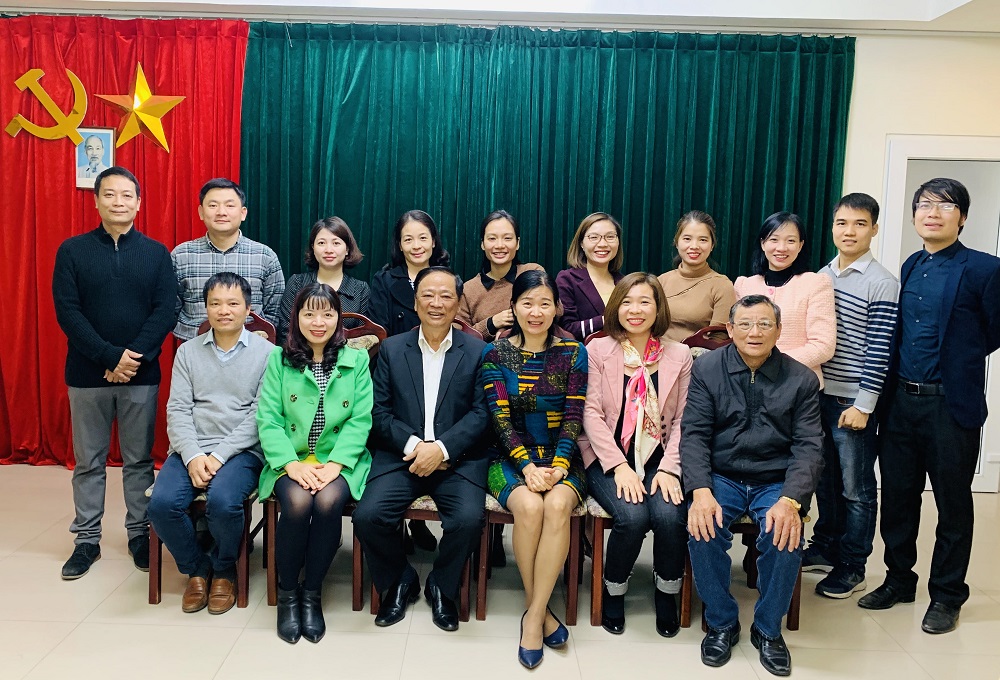
The council and the entire staff and lecturers of the Institute of Broadcasting and Information Technology took a commemorative photo.
Collaborating with WCS to integrate wildlife conservation and law enforcement into the fight against illegal wildlife trafficking is a significant activity in the training work of the Institute of Journalism and Communication Training. This represents a promising direction for development, both in theoretical and practical research on specialized journalistic topics, especially in the complex dynamics of contemporary ecological issues.
|
ButWCS organizationhttps://vietnam.wcs.org/Trang-chủ.aspx)Established with the goal of conserving the world's largest wilderness areas, across 15 priority regions – holding 50% of global biodiversity value – WCS has a 120-year history, with representative offices in nearly 60 countries worldwide and its headquarters in New York, USA. WCS has been working in Vietnam since 2006 with the primary mission of combating illegal wildlife trafficking and promoting inter-sectoral cooperation and activities at both national and international levels. Vietnam has one of the highest levels of biodiversity in the world; however, the level of threats and risks of extinction is alarming. As of 2014: + 1211 species (600 plants, 611 animals) are threatened with extinction. + Species listed in the IUCN Red List (2019): plants: 299 species, animals: 1056 species. + The world's rarest animals, such as the saola, are at a critical threat level; the one-horned rhinoceros is extinct; there are only 10-20 tigers left in the wild; and primate and bird species are declining rapidly. Furthermore, Vietnam serves as both a consumer market and a transit point for the most important illegal wildlife trafficking ring in Southeast Asia. Rhino horns, elephant tusks, and pangolin scales are the main wildlife products traded for consumption in China, Vietnam, and Thailand. Over the past 10 years, it is estimated that more than 1 million pangolins have been killed globally for medicinal purposes... - Illegal wildlife trafficking is a pressing global issue. |
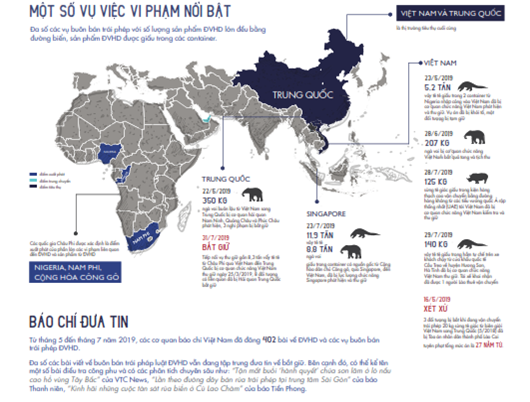
Source: WCS Vietnam
Author:SJC
Newer news
Older news